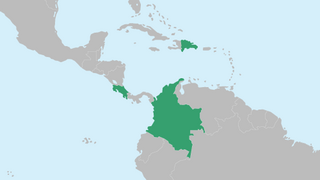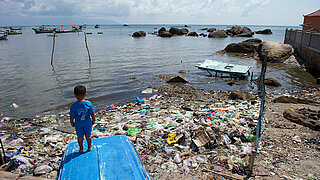Reducing marine litter: what are the specific challenges in the Caribbean Sea?
The Dominican Republic, Costa Rica and Columbia all border the Caribbean Sea. The consumption of single-use plastic packaging and other plastic products is high in the region. Due to a lack of collection and disposal systems in all three countries, the resulting plastic waste is not being correctly managed, and is entering the Caribbean Sea as marine litter via rivers and coastal areas.
Surveys have discovered up to 200,000 pieces of plastic per square kilometre in the north-eastern Caribbean. This pollution poses a serious threat to marine ecosystems. On average, around 2,014 objects are found on the beach per kilometre in this region, with the most common items being plastic bottles and other single-use plastic objects, and polystyrene foam cups.
How is the project helping to reduce marine litter?

Copyright: iStockPhoto / Fourleaflover
A number of measures are being introduced to reduce the flow of plastic waste into the Caribbean Sea from the Dominican Republic, Costa Rica and Columbia. The volumes of plastic waste and their spread through the environment will be monitored and mapped.. These measurements are then used to design and implement pilot solutions for a circular economy, such as the deployment of solar-powered waste collection points and bins, electric waste collection vehicles and technical facilities for calculating waste fees.
The project also supports capacity building of political partners in the three countries at both local and national level. This involves advising partners on how to assess technology options and policymaking models for improved waste management. For example, the project aims to establish systems for extended producer responsibility, involving the manufacturers of plastics in the reduction of marine litter. Another aim is to create sustainable structures at community level, which will include guidelines and decision-making tools for waste fees, for introducing separate (sorted) waste collection, for closing unmanaged waste dumps and for assessing potential sources of financing.
Knowledge transfer at international level will ensure that the solution strategies developed by the project can be applied in other Caribbean and Latin American countries. In this way, the project will exert an influence beyond these three countries and act as a flagship project in the region. To achieve this, PROMAR will work with partners such as the United Nations Environmental Programme (UNEP) – especially the Cartagena Convention and its signatory states.


